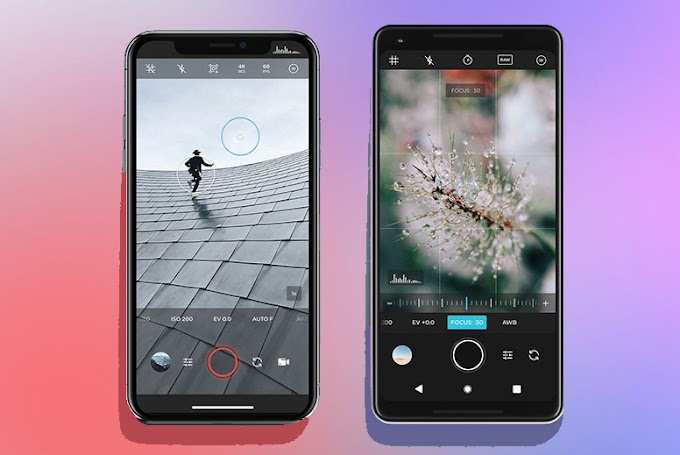We all want the best battery life and performance out of our phones, but the way we use and charge them can mean they lose battery life over time, and to add to the confusion there's a lot of misinformation out there about what you should and shouldn't do when it comes to charging and discharging your phone's battery.
Do you know if using a fast charger can damage your device? If you are like most people, you’ve little to no clue. Most cell phone chargers on the market are designed with fast charging in mind but even though this process is nominally quick, it comes at the cost of battery life.
All chargers use varying degrees of current, which means they can’t provide the level of current needed for fast or rapid charging when your device is at rest on a table or desk.
So let's start off with some battery basics
Chances are unless you're reading this from the far distant future your phone has a lithium-ion or lithium-polymer battery. There are pros and cons for these lithium-ion or lithium-polymer kinds of batteries including safety and cost, but both are very similar when it comes to charging and longevity.
Neither suffers from the so-called memory effect meaning, if you always charge to say 60 percent then eventually the capacity will decrease to this level. The memory effect has been seen to a limited degree in some lithium-ion cells but at least it's much less prominent in this kind of battery compared to older types of batteries with nickel-cadmium and nickel-metal hydride.
With these older lithium-ion or lithium-polymer batteries, you'd always want to make sure you deplete it fully before recharging and always recharge it to 100% with modern lithium batteries in a weird way actually the opposite is true because of the chemistry of these batteries you want to minimize the amount of time it spends without a very high or very low capacity level. Both of which put a strain on the battery.
The truth about this and all kinds of battery degradation really is that you'll only really see the difference this makes over years of use but hopefully, you're planning on keeping a new phone for a couple of years anyway so you want to make the most of it your battery.
That's not to say that having a phone battery at 100% some of the time is bad your battery is there to be used after all but if you're constantly fast charging it from 80 up to 100% it's gonna age faster than it would otherwise because of the strain this puts on the internals of the cell.
How do brands extend the battery life of smartphones?
That's why some recent android smartphones like the Asus zenfone 7 Pro actually give you a score for your fast charging habits so you'll know if it'd help to make some changes and in Asus latest gaming phone the rog phone 5 there's even an option to cap the regular charge limit at 80% because that phone has a huge 6000 milliamp-hour battery so probably you don't always need that full charge to get through the day.
Other brands like Samsung, Oneplus have software features that learn when you normally wake up and make sure to only charge the final 80% when it's actually needed to leave you with a full charge in the morning. It's a really nice balance between battery health and practical use.
Overnight charging is actually a really interesting point because obviously charging overnight risks your phone is less than ideal 80 to 100% range for longer. That's even more true when you consider fast charging.
Does fast charging reduce battery life?
Now fast charging can already age your phone battery more quickly because of the heat it produces the faster you charge the more heat and high heat is bad for lithium batteries, so most fast charging systems have a way to cleverly dissipate the heat and only charge at full whack for the first 50% or so when the battery can cope with it more easily.
So with a quick charger or fast charger say you plug in overnight and it takes even less time to reach that 100% figure and you're holding it at full capacity for even longer than if you'd used a slow charger and you're producing more heat in the process which is also not ideal.
But also if you're a phone manufacturer you really shouldn't expect your customer to have to worry about this sort of thing
Best types of Charging Technologies?
That's why the best kind of charging isn't fast or slow it's smart and like I said we're already seeing many smartphone manufacturers bring in smart charging systems to limit the amount of time your battery spends in that critical 80 to 100% range or worse plugged in and still charging at 100%.
Now Smartphones Brands have any kind of their own charging technologies like Oppo's Vooc, Oneplus's Warpcharge, Vivo's Flashchage, Realme's SuperDart, Samsung's Adaptive fast charging, Xiaomi and Apple uses USB Power Delivery (USB PD), and many more.
But Which type of battery charging is Good?
Every kind of battery charging solution is a trade-off between convenience speed and long-term battery health, ultimately in phones, it's gonna be smart charging software that helps make the difference to battery health in the long run especially when we have super quick charging standards pushing past 100 watts on the horizon.
And it's also true that your battery or 100% of it is there to be used and the battery degradation is something that will really only become apparent over one or two years of use.
Is Wireless Charging Safe?
Finally, we should talk about wireless charging bit, wireless charging is less efficient and produces more heat than charging over USB cables and as we've already seen hot is the enemy of long-term battery health.
That's why most fast wireless charging systems like Xiaomi, Oneplus, Oppo, and Huawei have built-in fans to keep things at a reasonable temperature still if you're going to charge wirelessly slow opportunistic toppers throughout the day is the best.
And for the reasons we've already talked about if you've got a wireless charger on your desk for quick top-ups throughout the day, it's best to not just have it sitting there all day at 100 percent.
Hopefully, you found some tips in this blog that will help you make your phone's battery last a little bit longer at least until we discover some new-fangled battery science that helps us move past the limitations of lithium-ion.
Frequently Asked Questions( FAQ) for fast charging
Q1. Does fast charging drain the battery faster?
If you have fast charging enabled, it might mean that your phone draws more power than if you had normal charging. The problem, we're told, is that if your phone has not been properly drained before fast charging, it may draw too much power, causing your battery to explode.
Q2. Does charging overnight damage the battery of a smartphone?
For most, the answer is no. For now, battery technology continues to improve, and battery life is easier to achieve in the smartphone than it ever has been before.
Phones have gotten faster, processors have become more power-efficient and battery technology has improved. So, while charging overnight can extend the life of your battery, it will have no effect on the battery's capacity to hold a charge. It simply gives your phone a long time to get its juice back before going into hibernation.



---.png)

.png)


Please do not enter any spam link in the comment box